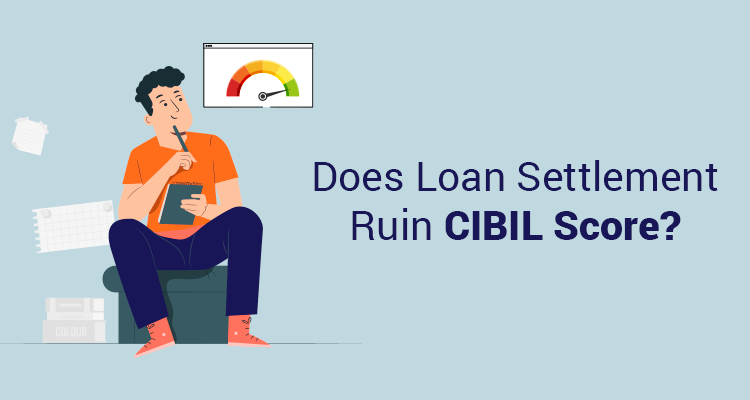When businesses face mounting debt, loan settlement can seem like a lifeline. It allows a business owner to negotiate with creditors to pay off a portion of the debt, ideally easing the financial burden and helping the business recover. However, loan settlement can have a significant impact on your business credit score, which is something every business owner should understand before making this decision. Here’s a breakdown of how loan settlement can affect your business credit and what to consider.
1. What is Loan Settlement?
Loan settlement is a debt relief strategy in which a borrower negotiates with a lender to pay a reduced lump sum instead of the full outstanding debt. Once the payment is made, the lender considers the debt resolved. For businesses struggling to manage debt, this can provide much-needed relief and allow them to focus on rebuilding.
2. Loan Settlement vs. Loan Repayment
Unlike a standard loan repayment, where you pay off your debt as agreed, a loan settlement implies that you’re paying less than what was initially owed. This reduced payment often reflects financial hardship and, while beneficial in the short term, can leave a mark on your business credit report.
3. How Loan Settlement Affects Your Credit Score
a) Impact on Credit Report
When a debt is settled, the lender typically updates the account status to “settled” or “settled for less than the full balance” rather than “paid in full.” This notation can stay on your business credit report for several years, signaling to future lenders that you were unable to repay the full amount as originally agreed. This can lead to a lower credit score and affect your business’s creditworthiness.
b) Credit Score Drop
Because loan settlement indicates that a debt was not paid in full, it’s viewed as a negative item by credit scoring models. This may result in a noticeable drop in your business credit score, as it reflects a higher risk to lenders. The impact on your score will vary depending on the business’s overall credit history, current credit score, and other factors, but it can take years to fully recover from the effects of a loan settlement.
c) Reduced Access to Future Credit
A settled debt can make future lenders hesitant to extend credit to your business, or they may only offer credit with higher interest rates and stricter terms. Some lenders view a settlement as a sign of financial instability, meaning that accessing credit in the near future might come with more challenges.
4. Long-Term Effects on Business Credit
a) Higher Cost of Borrowing
Even if you’re able to secure new loans or credit lines, the cost of borrowing is likely to be higher after a loan settlement. With a lower credit score, lenders may increase interest rates or require collateral. This can result in higher expenses for the business, reducing overall profitability.
b) Limited Financing Options
Some financial institutions may decline credit applications outright if a settlement appears on your business credit report. Additionally, larger credit lines or favorable financing arrangements may become difficult to obtain, as lenders prefer borrowers with clean credit histories.
c) Impact on Business Partnerships
In some cases, business partners, suppliers, or investors might view loan settlement as a sign of financial vulnerability. Depending on your industry, a damaged credit score could lead to hesitance or caution in potential partnerships, which may limit growth opportunities.
5. Strategies to Minimize the Impact of Loan Settlement on Credit
a) Negotiate Credit Report Terms
During settlement negotiations, try to reach an agreement with the lender to list the debt as “paid in full” or “settled in full” rather than “settled for less.” Some lenders may agree to more favorable reporting terms in exchange for a timely lump-sum payment.
b) Focus on Rebuilding Credit Post-Settlement
After settling a loan, take steps to rebuild your credit score. This might involve opening smaller, manageable lines of credit and paying them off on time, reducing outstanding debt, and keeping credit utilization low. Responsible credit use and timely payments on other accounts can help improve your score gradually.
c) Diversify Your Financing Sources
If you anticipate needing credit in the future, explore alternative financing options beyond traditional loans. Options like crowdfunding, venture capital, or angel investors may be less impacted by your credit score, allowing you to secure funds for business growth without relying on standard credit channels.
d) Maintain Positive Relationships with Existing Creditors
Lenders with whom you’ve maintained a good payment history may still be willing to work with you post-settlement. Cultivating strong relationships with other creditors, vendors, and suppliers can help maintain business operations and financing options even if traditional lending is more challenging.
6. When Is Loan Settlement the Right Choice?
Loan settlement may be the best option if your business is facing extreme financial hardship and recovery seems unattainable without reducing debt obligations. However, it’s essential to weigh the long-term effects on your business credit score against the immediate relief it provides. Consulting a financial advisor can help you explore all available options, from debt restructuring to other forms of financial assistance, before deciding to settle.
Conclusion
While loan settlement can relieve immediate financial stress for businesses in debt, it can also have a lasting impact on your business credit score and financing options. By understanding how settlement affects credit, negotiating favourable terms, and taking steps to rebuild your score post-settlement, you can protect your business’s future financial health. The decision to settle a loan should be made carefully, balancing the benefits of immediate debt relief with the long-term impact on creditworthiness and growth opportunities.
Get in touch with us today at www.Settleloan.in and embark on your path to financial freedom



